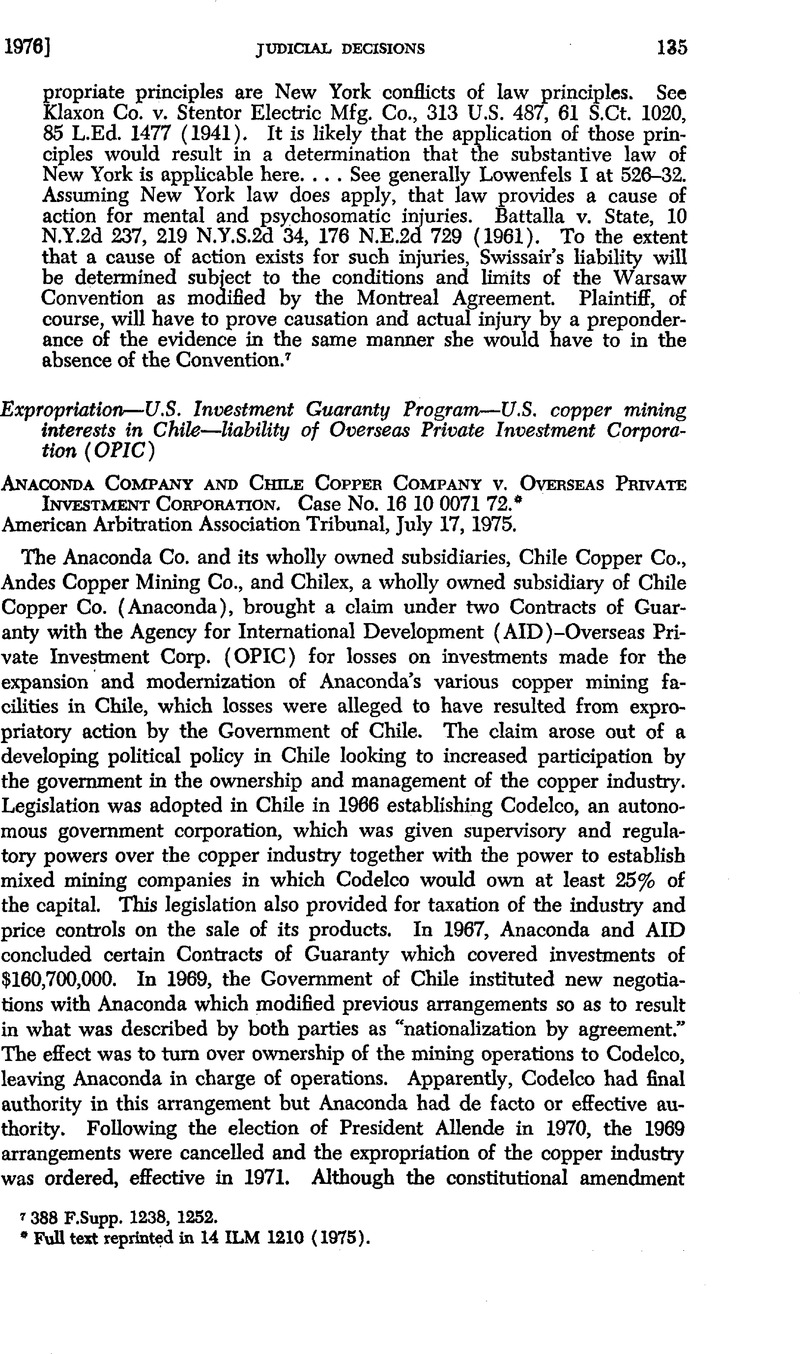No CrossRef data available.
Published online by Cambridge University Press: 08 June 2017

Full text reprinted in 14 ILM 1210 (1975).
1 Section 1.15 provided in relevant part:
The term “Expropriatory Action” means any action which is taken, authorized, ratified or condoned by the Government of the Project Country, commencing during the Guaranty Period, with or without compensation therefore, and which for a period of one year directly results in preventing:
(b) the Investor from effectively exercising its fundamental rights with respect to the Foreign Enterprise either as shareholder or as creditor, as the case may be, acquired as a result of the Investment; or
(c) the Investor from disposing of the Securities or any rights accruing therefrom; or
(d) the Foreign Enterprise from exercising effective control over the use or disposition of a substantial portion of its property or from constructing the Project or operating the same;…
provided, however, that any action which would be considered to be an Expropriatory Action if it were to continue to have any of the effects described above for one year may be considered to be an Expropriatory Action at an earlier time if AID should determine that such action has caused or permitted a dissipation or destruction of assets of the Foreign Enterprise substantially impairing the value of the Foreign Enterprise as a going concern.
Case No. 16 10 0071 72, 11–12, quoted by Tribunal. Footnotes by Tribunal omitted.
2 Among the exceptions to the definition of “Expropriatory Action” are the following:
(1) any law, decree, regulation, or administrative action of the Government of the Project Country which is not by its express terms for the purpose of nationalization, confiscation, or expropriation (including but not limited to intervention, condemnation, or other taking), is reasonably related to constitutionally sanctioned governmental objectives, is not arbitrary, is based upon a reasonable classification of entities to which it applies and does not violate generally accepted international law principles; or
(2) failure on the part of the Investor or the Foreign Enterprise (to the extent within the Investor’s control) to take all reasonable measures, including proceeding under then available administrative and judicial procedures in the Project Country, to prevent or contest such action; or
(3) action in accordance with any agreement voluntarily made by the Investor or the Foreign Enterprise.… Id. 12.
3 Section 13 provided in part:
(7) acts validly taken pursuant to (i) Law 16,624 (which established the definitive text of Law 11,828 and of Law 16,425 and 16,464), (ii) D.F.L. 258, and (iii) the Decrees applicable to the Project.
The abrogation, impairment, repudiation or breach by the Government of the Project Country of any undertaking, agreement or contract under which the Foreign Enterprise shall construct or operate the Project shall be considered an Expropriatory Action only if it constitutes Expropriatory Action in accordance with the criteria set forth in this section. Id. 13.
4 Id. 28.
5 Id. 30, n. 22.
6 Id. 35.
7 Ibid.
8 Ibid.